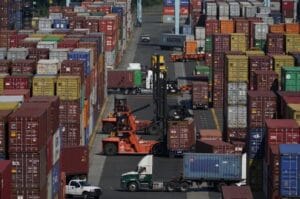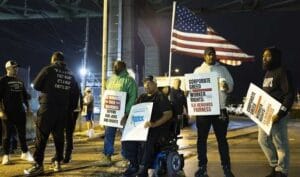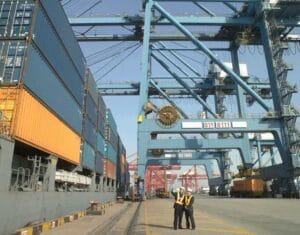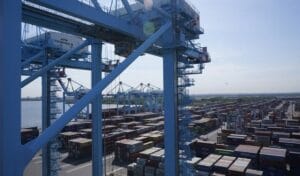Recently, about 45,000 workers across U.S. ports began a significant strike following a breakdown in union negotiations. This strike isn’t just a hiccup; it has serious implications for the economy and our everyday lives. Ever wondered what happens when the people who keep our goods moving stop working? Let’s dive in!
What Led to the Strike?
The strike emerged after protracted negotiations between the unions and port management reached an impasse. Key issues included wages, working conditions, and job security—elements that are crucial for maintaining a stable workforce. Think about it: if workers don’t feel valued or secure in their roles, why would they continue to show up day after day?
The Impact on the Supply Chain
So, what does this mean for the supply chain? The immediate effects are already visible. With thousands of workers walking off the job, port operations have slowed significantly, leading to delays in shipping and increased backlogs. This isn’t just a problem for businesses; it affects everyone. Picture a world where your online orders are delayed or the shelves at your local grocery store are bare. Frustrating, right?
Historical Context
Strikes at ports aren’t new. Historically, labor disputes have often led to significant changes in labor laws and working conditions. Previous strikes have resulted in better wages and benefits for workers, but they also come with a cost—disruption to the economy. Understanding this history can provide valuable context for the current situation. It’s like a cycle that keeps repeating itself until meaningful resolutions are found.
Voices from the Frontlines
Let’s hear from those directly affected. Workers have expressed their frustrations about the ongoing negotiations, highlighting the challenges they face daily. Union leaders have also stepped up, emphasizing the necessity of fair treatment and adequate compensation. After all, these workers are the backbone of our economy. Without them, how would goods move across the country?
Government and Industry Response
In response to the strike, both local and federal authorities have expressed concern over the potential economic fallout. Businesses dependent on timely shipments are bracing for the impact, with some already experiencing delays. Statements from industry leaders highlight the urgency of resolving the dispute, as every day the strike continues costs money and slows down progress.
Alternatives for Shipping
What are companies doing in the meantime? Many are exploring alternative shipping routes or methods to keep their goods moving. Some may even look to increase their reliance on air freight, which, while faster, can also be significantly more expensive. It’s like trying to find a detour on a road trip—navigating new paths can be tricky and costly.
The Importance of Labor Rights
This strike sheds light on the broader issue of labor rights in the United States. Workers deserve fair treatment and conditions that promote their well-being. Historical struggles for these rights have paved the way for the benefits many enjoy today, but the fight isn’t over. Labor rights are a fundamental part of a just society; without them, workers risk exploitation.
Looking Ahead
What’s next for these workers and the ports? The potential outcomes of this strike could range from renewed negotiations to lasting changes in labor agreements. The key will be how both sides approach the bargaining table moving forward. Open communication could lead to a resolution that benefits everyone.
Community Support
Interestingly, the public reaction has been quite supportive of the striking workers. Many see their struggle as part of a larger fight for fair labor practices. Solidarity from other unions has emerged, with various groups offering support to the port workers. This unity is vital; it shows that when workers stand together, they can amplify their voices.
FAQs
1. Why are the port workers striking?
The strike stems from unresolved negotiations regarding wages, working conditions, and job security.
2. How will this strike affect the economy?
The strike could lead to shipping delays, affecting supply chains and causing potential shortages in stores.
3. What is the government doing in response?
Local and federal authorities are monitoring the situation, expressing concern over the economic impact, and encouraging negotiations.
4. Are other unions supporting the striking workers?
Yes, there has been notable solidarity from other unions, highlighting the importance of labor rights.
5. What happens next in the negotiations?
Negotiations will ideally resume, with both sides seeking a resolution that addresses workers’ concerns and minimizes disruption.
See more about:
Playstation Network Status
Edgar Ramirez



